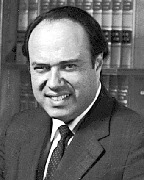It often makes sense for doctors to own their space. There are many advantages of ownership: cost savings of common facilities, no rent increases, no renewal risks, equity buildup, control over maintenance and management, restrictions on use, separate mortgage financing, separate tax bills, lock on location, fewer construction problems, and finally the enhanced image of ownership.
Owning a medical condominium is a good alternative to renting. The advantages far outweigh any disadvantages.
Medical offices do not normally have to deal with expansion or contraction issues. To resolve expansion, a medical group could buy more space than is needed and lease the excess space. As for contraction, the owner needs to be able to lease excess space.
Condominium documents must clearly allow for selling or leasing excess space.
The medical condominium must have good condominium documents.
The documents must address use restrictions such as whether the use is just medical or is expanded to professional offices and to general business offices.
With proper planning, the condominium form of ownership makes sense for medical practices.
Saul Feldman is a real estate attorney with Feldman & Feldman, P.C., Boston.
Tags:









